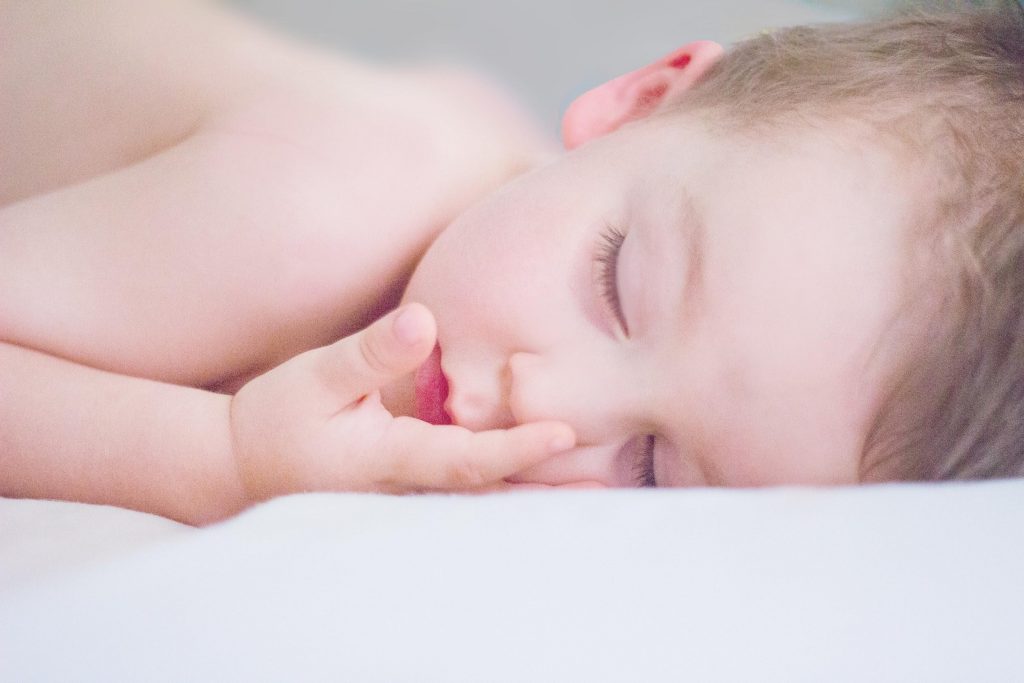These 4 Tips Will Help Your Child Get Better Sleep
Photo by Studio 7042 from Pexels
Adults need to sleep and replenish their energy to remain healthy and be able to perform their daily activities with focus. And this is all the more true for children, whose bodies and brains need quality sleep to develop and reach their full capacity.
A good night’s rest is crucial to your child’s physical and psychological well-being. According to a study, insufficient sleep is responsible for an increased risk of childhood obesity.
In addition, if your child doesn’t get enough quality sleep, not only can they develop health issues, but also adopt bad sleeping habits which will follow them through the rest of their lives.
If you want your child to be happy and grow into a healthy adult, take a look at the tips below to help your kid adopt healthy sleeping habits.
Know how much sleep your child needs
As we age, our sleeping patterns and needs are changing. But one thing is for sure – all kids need sleep. For example, babies need to sleep much more during the day, as their bodies are developing at the fastest rate. But even teenagers need to sleep more and better than adults.
Depending on the age of your child, you need to know how much sleep they need.
Newborns
In the first 3 months of their life, babies sleep a total of 10.5 to 18 hours a day. However, they have a rather irregular sleep schedule, with sleep periods lasting from a few minutes to several hours and sometimes spending up to three hours awake
Infants
In general, infants need 9-12 hours of sleep a day during the night. They also take occasional naps (one to four times a day) which may last anywhere from 30 minutes to 2 hours.
Secure infants who are attached to their caregiver tend to have fewer problems falling asleep, but some of them may experience separation anxiety if they are too attached.
Toddlers
In the second year of their lives, children normally need 11-14 hours of sleep every day. Once they turn 18 months, they will usually only nap once a day for about one to three hours. This is where you need to be very careful and not allow them to nap too close to bedtime, as this may delay sleep at night.
Preschoolers
Children from 3 to 5 years of age generally sleep for 11-13 hours a day, and they usually sleep only at night if they are not too exhausted from their daily activities.
Preschoolers have a much more vivid imagination compared to toddlers, so they tend to have nighttime fears and nightmares more often, which is a useful thing to know.
School-aged children
From the age of 6 to the age of 13, children usually sleep 9-11 hours a day. As their activities (school, homework, social activities, watching TV and playing video games, playing sports, and hopefully eating healthy desserts) take up more and more of their time, they can have more difficulty falling asleep.
Establish a bedtime routine
Children’s circadian rhythm (natural sleep-wake cycle) is crucial for the quality of their sleep. To adopt a regular sleep-wake schedule, your children should:
Go to sleep and get up at the same time every day.
When their internal body clock understands that they need to wake up and go to bed always at the same time, their sleep quality will be optimal. They should go to bed when they feel tired instead of staying awake to watch TV or play video games.
Try not to sleep in.
When children sleep in, their circadian rhythm is disturbed and they experience jetlag-like symptoms. It is much better to take a bedtime nap than sleep in, even on weekends.
Listen to bedtime stories.
Regular bedtime story reading will encourage your child to associate this activity with sleep. This is especially effective when it comes to younger children, as they can often fall asleep even after you have read only a couple of paragraphs.
Create a sleep-friendly environment
The quality of your child’s sleep does not depend only on when they fall asleep and what they do before going to bed. Where your child sleeps is also extremely important, so make sure that their bedroom provides optimal conditions for sleeping.
Keep the bedroom cool.
Have you ever slept in a room that was too hot? Then you know how it can negatively affect sleep quality.
Your child’s body temperature has to drop slightly in order for them to fall asleep. Normally, you should keep the temperature in their bedroom around 65°F (18°C). Also, make sure that there is adequate ventilation in the room to allow a regular oxygen flow.
Make it comfortable.
Bed quality, soft and fresh sheets, and dimmed lights can make your child fall asleep much faster than you would think. Moreover, having one or two stuffed animals can make it easier for your child to sleep. However, it’s not a good idea to have a room full of toys, as this can prevent your child from falling asleep easily.
Shhhhh! It’s bedtime.
It is probably impossible for you to completely eliminate noise from traffic, neighbors, or even people living in your own home. However, try to minimize the noise. Also, turn off or mute the radio, TV, and computer at least two hours before bedtime.
This leads us to the next point.
Use light wisely
Photo by Caroline Hernandez on Unsplash
While the world is becoming over-digitalized, you may not even notice how this trend can hinder your child’s development and sleep. Humans need sun, not smartphones or TVs, so try to regulate your child’s circadian rhythm by manipulating the sources of light they are exposed to.
Less blue light
Exposure to artificial and blue light late at night can do harm to your kid’s sleep-wake cycle. Blue light comes from electronic devices like smartphones, TV, computers, etc.
If children are over-exposed to blue light, their bodies cannot produce enough of the hormone that helps them relax and enter a deep sleep mode – melatonin. So, make sure that your little ones don’t look at bright screens for two hours before bedtime.
More bright light during the day
All humans need sunlight to remain healthy, and so does your child. This increases their daytime energy, and also improves nighttime sleep duration and quality.
If there is not enough sunlight on a particular day and opening curtains or windows doesn’t do much, you can always turn on the lights in your home to simulate natural light. This helps with producing daytime hormones and reduces drowsiness during the day, which consequently makes your child sleep better.
Bonus tip – relieve stress
Did you think that only adults can be stressed? You were wrong.
If you think that your child has no reason to stress, think again. School, friends, family arguments – all of these take a toll on your child’s psychological condition, leading to stress and increased levels of cortisol, which is a hormone that prevents both adults and children from falling asleep.
The solution is to talk to your child regularly, teaching them how to enjoy playing and forget about negative things. Also, keep the activities before bedtime calm, the lights dim, and the environment quiet. This will decrease your kid’s cortisol levels and prepare them for a good night’s sleep. These additional tips will get your baby sleep through the night.






